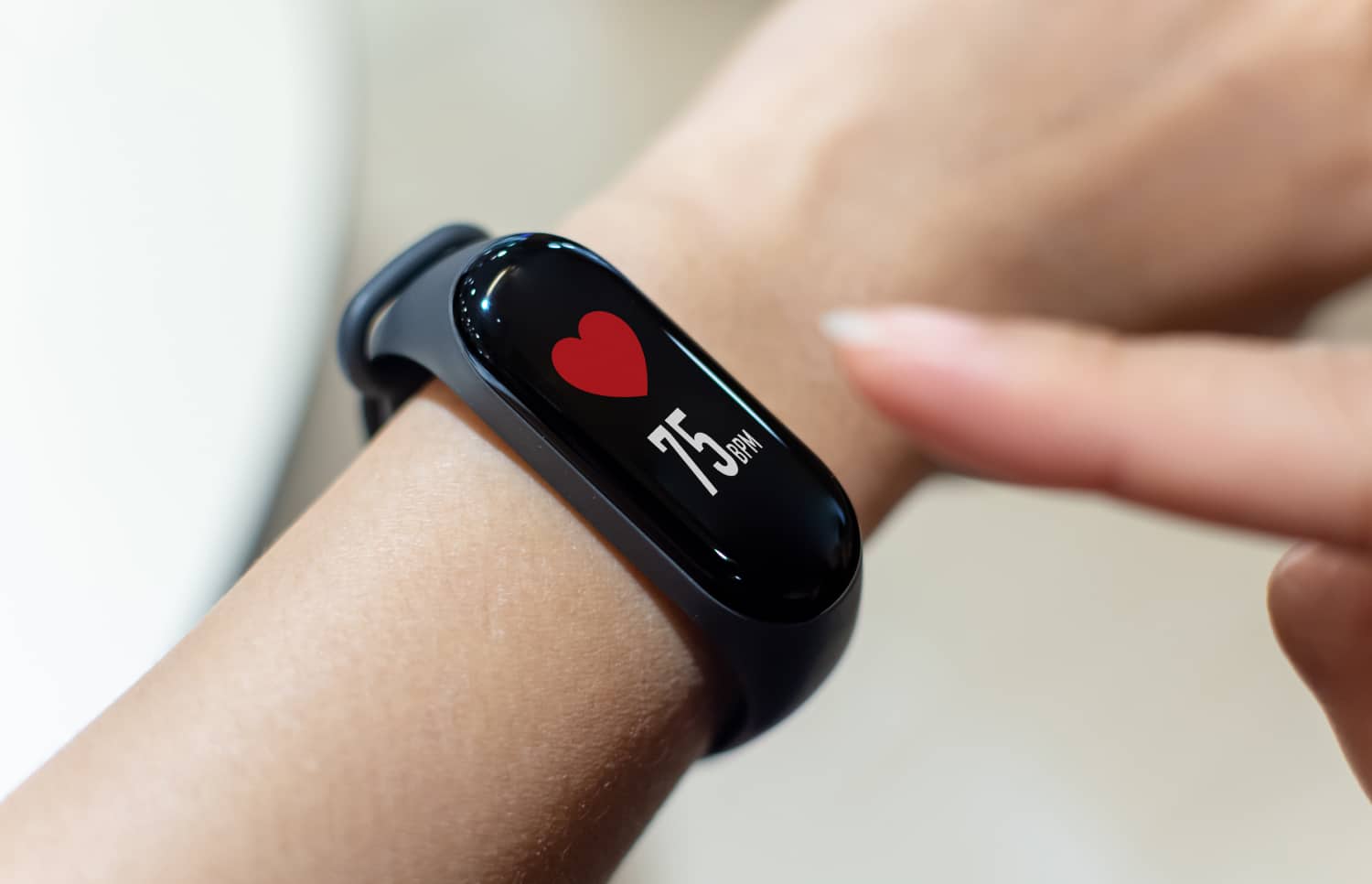Does CBD Affect Heart Rate?
|
| Navigating the world of cannabinoids, particularly CBD, can be complex given its myriad interactions with our bodies. But knowing the ways CBD can benefit your well-being can help you make the most informed choices for your wellness needs. And one vital area in which CBD may have an effect: your heart health. |
Ready to dive into the effects of cannabidiol on aspects of our cardiovascular health, specifically heart rate, and how its complex interaction with our endocannabinoid system might affect overall well-being? Let’s get into it.
What Is CBD?
CBD, short for cannabidiol, is a prominent cannabinoid, one of the many naturally occurring compounds extracted from the Cannabis sativa plant. It shares this plant-based origin with another well-known cannabinoid, THC, or tetrahydrocannabinol. Despite this shared heritage, CBD and THC are markedly distinct compounds with different characteristics and effects on the human body.
CBD has garnered significant attention in the scientific community and among health-conscious consumers. It's one of over a hundred cannabinoids found in the cannabis plant. Unlike THC, CBD is non-intoxicating, meaning it doesn't produce the 'high' often associated with cannabis use.
This characteristic has made it a point of interest for many people seeking the potential benefits of cannabinoids without the psychoactive effects.
How Are CBD and THC Different?
THC is most notable for being the psychoactive component in cannabis. This means that when it interacts with the body, specifically the receptors in the brain, it can induce a state of euphoria or the notorious “high.” This occurs because THC has a strong affinity for binding directly to the CB1 receptor, one of the main receptors in the endocannabinoid system, predominantly found in the brain and central nervous system.
In stark contrast, CBD behaves quite differently. CBD does not bind directly to the CB1 or the CB2 receptor, the other main receptor in the endocannabinoid system, which means it doesn't induce psychoactive effects. Instead, CBD has a more indirect interaction with the endocannabinoid system. This unique interaction contributes to CBD's distinctive characteristics and makes it an area of keen interest in the scientific community.
The specific ways CBD interacts with our bodies are still under investigation. It's a complex subject that we will continue to explore in the upcoming sections, providing insight into how CBD could potentially influence various aspects of our health, such as heart rate and overall cardiovascular well-being.
What Is the Endocannabinoid System?

The endocannabinoid system, often shortened to ECS, is a complex cell-signaling system in our bodies. It's been recognized as a significant regulatory network, instrumental in maintaining homeostasis — a stable, well-balanced internal state.
How Does the ECS Work Within the Body?
The ECS extends its reach throughout the human body, with its receptors, namely CB1 and CB2 receptors, found in various organs and systems, including the cardiovascular system. By interacting with these receptors, the ECS plays a crucial part in several physiological processes. It helps regulate mood, sleep, appetite, and other crucial bodily functions. This extensive role is what makes the ECS a central subject in the conversation around overall health and well-being.
How Can CBD Engage With the Endocannabinoid System?
One of the unique aspects of CBD is its interaction with the endocannabinoid system. It's primarily involved with two types of ECS receptors: CB1, predominantly found in the brain, and CB2, mostly located in cells associated with the immune system.
While THC is believed to bind directly to these receptors, especially the CB1 receptors, resulting in its psychoactive effects – research suggests that CBD follows a different approach. It doesn't bind directly with either the CB1 or CB2 receptors. Instead, it exerts an indirect influence on these receptors, potentially explaining why CBD doesn't produce the psychoactive effects typically associated with THC.
As of now, researchers are still working to fully understand the exact mechanisms behind CBD's interaction with the ECS. This ongoing exploration may shed light on the potential effects of CBD on various aspects of human health, including its influence on heart rate and overall cardiovascular system health. It's a fascinating subject that's continually evolving as new research emerges, offering promising insights for the future.
What CBD Products Are Available?
In the burgeoning world of CBD, there is a growing array of products available for consumers to choose from. These offerings allow you to find a product that aligns with your preferences and lifestyle.
CBD Oil and Tinctures
Among the most popular forms of CBD is the traditional CBD oil, often administered sublingually by placing drops under the tongue. This method allows CBD to be absorbed quickly into the bloodstream through the mucous membranes, fostering a swift onset of effects.
Full-spectrumtinctures are another form of CBD oil that incorporate all the cannabinoids present in the cannabis plant, including trace amounts of THC. The theory behind full-spectrumCBD products is the 'entourage effect,' a synergistic interaction between cannabinoids that purportedly enhances their overall effectiveness.
Edibles and Gummies
Edibles and gummies present a delightful way to enjoy CBD. Convenient and discreet, these products can easily be incorporated into a daily routine. Due to their method of consumption, these forms of CBD pass through the digestive system, meaning their onset might be slower compared to sublingual administration.
Topicals
TopicalCBD products like soothing balms or restorative lotions are another category that has gained considerable attention. These products include creams, balms, and lotions intended for external use. Topical applications may offer a targeted approach for managing discomfort and swelling.
Does CBD Affect Heart Rate?

When we talk about heart rate, we often refer to the resting heart rate, which is the number of times your heart beats per minute when you're at rest. This rate can be affected by various factors, including stress, diet, and activity levels. It's also worth noting that an increased heart rate can sometimes be a response to certain stimuli, such as exercise, emotions, or changes in body temperature.
Preliminary research suggests that CBD could play a role in influencing heart rate. Some studies show that CBD may help maintain a balanced resting heart rate and may potentially counteract an increased heart rate caused by certain factors. However, it's important to remember that everyone's reaction to CBD can be different, and what works for one person might not work for another. More research is needed to clarify the potential relationship between CBD and heart rate fully.
CBD and Overall Heart Health
The cardiovascular system, composed of the heart, blood vessels, and blood, plays a critical role in our overall health, and early animal studies and human studies suggest that CBD may have a positive effect on the cardiovascular system.
CBD and Blood Pressure
Along with helping maintain a balanced resting heart rate and support optimal blood flow – potentially facilitating the effective delivery of oxygen and nutrients throughout the body – initial studies suggest that CBD may also play a supportive role in helping the body maintain healthy blood pressure levels, adding another intriguing facet to the relationship between CBD and heart health.
Blood pressure refers to the force with which blood exerts against the walls of the blood vessels. Consistently high blood pressure, known as hypertension, can pose challenges to cardiovascular health and increase the risk of cardiovascular disease. By interacting with the ECS to help maintain a balanced physiological state, CBD may help support healthy blood pressure levels.
While these potential benefits are promising, CBD should not be viewed as a treatment for risk factors associated with heart conditions. It is, however, emerging as a potential ally that might be a beneficial addition to a holistic approach to wellness. As with all supplements, it's essential for anyone considering adding CBD to their routine to consult with a healthcare professional to ensure a safe and tailored approach.
Are There Side Effects of CBD?
Like any substance that interacts with the human body, CBD has the potential to produce side effects, although they are typically mild and infrequent. The current body of scientific literature generally considers CBD to be well-tolerated, but understanding the potential side effects is important for anyone considering adding it to their wellness routine.
The only real side effect is potential nausea or digestive discomfort when taking large amounts of CBD oil — and it results from the overingestion of MCT oil, rather than the CBD itself.
It's also worth noting that CBD may interact with certain medications, including some types of blood thinners. This is because CBD, like grapefruit, can interact with enzymes in the liver responsible for metabolizing many drugs. Therefore, if you're taking medication, it's crucial to consult with a healthcare professional before starting CBD.
Understanding your body's reaction to any new supplement is vital, and the same goes for CBD. If you experience any side effects, it's crucial to speak to a healthcare professional. Everyone's experience with CBD is unique, and a healthcare provider can help guide you on the best way to incorporate CBD into your regimen, if appropriate.
What’s the Future of CBD and Cardiovascular Research?
As the landscape of CBD research expands, so does the potential for uncovering new insights about its relationship with cardiovascular health. Numerous clinical trials and research projects are currently underway, aimed at elucidating the precise mechanisms and potential benefits of CBD on the cardiovascular system.
Several studies are examining the potential of CBD to support the cardiovascular system's functions. These research efforts range from exploring the effects of CBD on heart rate and blood flow to looking at its potential role in maintaining optimal blood vessel health.
The Food and Drug Administration's stance on CBD currently acknowledges its potential but calls for more research. While the FDA has approved one CBD-based drug for a specific form of epilepsy, the regulatory body maintains that more rigorous, scientifically sound research is necessary to make definitive conclusions about CBD's other potential applications.
This cautious stance underscores the importance of ongoing research and clinical trials in this field. It is through these rigorous scientific explorations that we can hope to gain a clearer understanding of CBD's role in supporting heart health.
Despite the challenges, the potential benefits of CBD for cardiovascular health continue to pique the interest of scientists, healthcare professionals, and consumers alike. The future looks promising, with new findings on the horizon set to enrich our understanding of CBD and its potential therapeutic properties.
As the body of knowledge grows, it will be essential to disseminate this information responsibly and clearly, ensuring that consumers can make informed decisions about their health and well-being.
Incorporate CBD Into Your Wellness Routine With Muscle MX
Deciphering the complex world of CBD can be an intriguing journey, one that brings us face-to-face with potential avenues to enhance our wellness. As research continues to unveil CBD's possible effects on our cardiovascular health and heart rate, it's becoming clear that this versatile compound might be a significant player in our overall well-being.
Choosing the right CBD product can be crucial in harnessing these potential benefits. Muscle MX offers a wide range of THC-free broad-spectrum CBD products, curated with quality and effectiveness in mind. From CBD balms for targeted application to CBD oil drops for systemic support, Muscle MX provides an assortment of options to suit individual preferences and lifestyle needs.
Whether you're looking to maintain overall health or explore new avenues for wellness, Muscle MX's broad-spectrum CBD products may be the ideal complement to your regimen. Start exploring the potential benefits of CBD today. Experience the Muscle MX difference and elevate your wellness journey. Discover a healthier you with Muscle MX.
Sources:
CBD vs. THC: What’s The Difference? | Forbes Health
Regulation of cannabinoid CB1 receptors in the central nervous system by chronic cannabinoids | PMC
An introduction to the endogenous cannabinoid system | PMC
How Your Cardiovascular System Works | Cleveland Clinic
Heart rate: What's normal? | Mayo Clinic
Is the cardiovascular system a therapeutic target for cannabidiol? | British Journal of Clinical Pharmacology
CBD For Blood Pressure: Does It Work? | Forbes Health










































